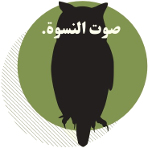
Azadeh Faramarziha
This year on the occasion of the 8th of March, International Women’s Day, feminists in Iran published a book (underground for sure!) in which they tackled the issue of Women’s Right in Child Custody from different perspectives, from legislative shortcomings to social restrictions and personal experiences. The title of the book Women’s Right in Child Custody in Iran, might make it seem like a 1000 pages book full of terms, definitions and explanations from the constitution, jurisprudence and Sharia. But in fact it is not! The thin-less-than-100-pages book is much more informal. It is mainly a book of stories: simple stories of women who have simply become mothers and have been simply living their lives until the day that the words divorce or death brought the “law” into their lives. Many of them did not have any idea how hard this law could be, and how harshly it would treat them, as if they are incompetent, or strangers to their families.
I briefly told about my story in one article of the book. Or better said: my mother’s story. A very simple story that is one of the biggest reasons why I am a feminist! In order to write that short article I had to go back in time, and to review memories I prefer to forget.
Ok. I lost my father at the age of 6. He was very young and his death was a complete shock. As a single mom, my mother found herself the only one responsible for her three children. But this was the issue: responsible for what? According to Iranian laws of custody in the case of death, custody would be granted to the mother only if the paternal grandfather and paternal uncle(s) are dead, or they refused to take custody. This was exactly our case. There was no grandfather and my uncles (after a consultative meeting) decided that there is no one more capable than a mother to take the custody of her children (as if there is a doubt about it ya3ne!).
But this is not the whole story. Here we just talked about “custody” not “guardianship”. Custody (Hadana) by definition means care of a child. It is associated with raising the child, such as feeding, clothing, bathing, etc. Whereas the guardianship (Waliya or Damm) is about supervision and making big decisions related to the child’s access to rights of citizens, including financial issues, health conditions, accommodations and traveling. The guardianship belongs to the father, paternal grandfather, uncle(s) or in case none of them are available, the guardianship of a child belongs to a governmental organization called “The Organization of Custody.” This organization works under the supervision of the Ministry of Justice and actually takes the role of a father as a main guardian of a child.
All of these explanations simply mean that my mother was responsible for our well- being, but she had no right to manage our inheritance (whatever it was), or to ask for a passport for us, or even to give her consent in case of surgery or other serious medical procedures.
Years passed and when I was 15 or 16, “we” decided to change our house. It was then that I actually understood the role of the “organization” in our life. Our sort-of-big apartment in west of Tehran was my parents’ biggest achievement. They worked hard together in order to buy it, and had invested all of their savings, in addition to a mortgage and loan, on it. My father barely lived for 3 years in this house. But it carried his sweet memory, and after many years, my mother convinced herself to let this memory go in order to buy another apartment and save a little bit money for our future. But apparently she was not the one to decide. The organization was the big boss. I remember they sent someone to our house, to measure it, estimate its value and order my mother about what house she should buy to live in. And what was my mother’s role? To search for a house that fits the criteria and satisfies the boss.
As I was writing the article, I realized that I could not remember all the details, especially from the first years when I was kid. So I gave us my mom a call to ask about the details. She answered my questions, and at the end she said: “Halla2 our situation was not that bad!” Aside from her permanent optimism that always finds the bright side of everything, this is actually true. Compared to many other women, our story with the Organization of Custody was one of the easiest. No medical crisis happened to us for which we had to wait for their permission; no traveling outside the country in which we had to wait in line for a signature. They did not pay any monthly salary to us which they blocked it each time they thought it is for the interest of kids (!). My uncles were good too and did not question my mother’s mothering every chance they got; and my mother never remarried and thus never lost the custody of her children. But we saw all of these injustices happening to other women in the rooms and corridors of the organization. Women were all the same there no matter how old they were, how educated they were, what kind of jobs they had. In that organization, women are only women who should be under supervision to ensure that they do not make wrong decisions for their children.
The Organization of Custody is meant to be an institution to “support” single mothers and their underage children. In theory, the presence of such organization is essential. But in practice, the only thing that it is doing is humiliating women constantly by ignoring them, ordering them around, making decisions for them and treating them like some incapable desperate creatures. To support means to stand beside someone and not over her/his head. Support means empowering someone and not making her/him vulnerable. Which part of such humiliation can be translated to support?
A few days after the publication of the book in Tehran, I read in the news about Rula Amin, the Al-Jazeera journalist who was detained for refusing to hand over the custody of her 5-year-old daughter in Jordan. I was thinking to myself: why am I surrounded by the issue of custody these days? But this is actually the point of writing this piece.
No matter who we are, no matter in which part of the region we are living, we are facing the same issues in child custody. My mother’s story could be another woman’s story in Kuwait; while Rula Amin’s story could be another woman’s experiences in Iraq. My childhood memory could be another girl’s memory here in Lebanon (whether she is Sunni, Shiite or Christian) while Rula’s daughter can be someone else’s daughter in Saudi Arabia. There is one law which is ruling us and our mothers and it will rule our daughters if we do not change it. This is a vast common ground for feminists in the region which could (and maybe should) connect them together in order to direct their efforts toward a united cause. Here there is no “cultural” difference! Here is just the law which, on one hand encourages women to stay home (or go back home), be good mothers and promises them the “heaven” under their feet, and on the other hand does not recognize them as the guardians of their children. A child belongs to his father and the mother is only a nurturing machine who fulfills the child’s basic needs for a limited period of time. And even this right is always under threat. Discrimination is like a knife always hanging over women’s heads: one step out of the “line” and you will lose the custody of your child.
Our story with the organization ended simply when my sister, my brother and I turned 18. In a testimonial, the organization officially announced that it does not have any responsibility towards us anymore. I remember when we went out of the organization for the last time, my mother sighed in relief. She was finally free.
Section:
Category:






